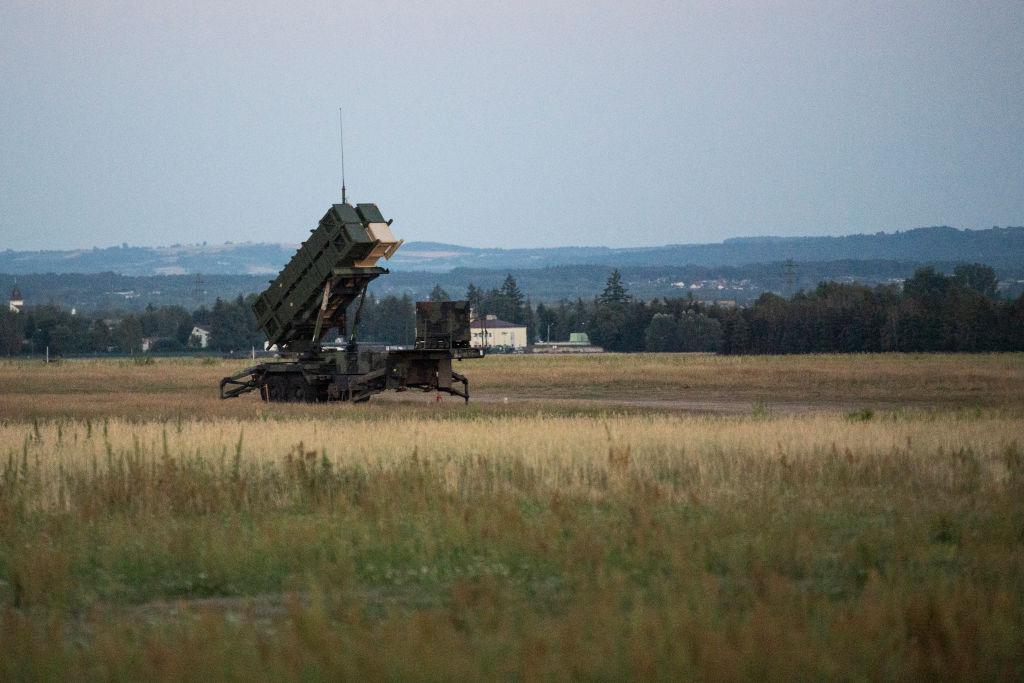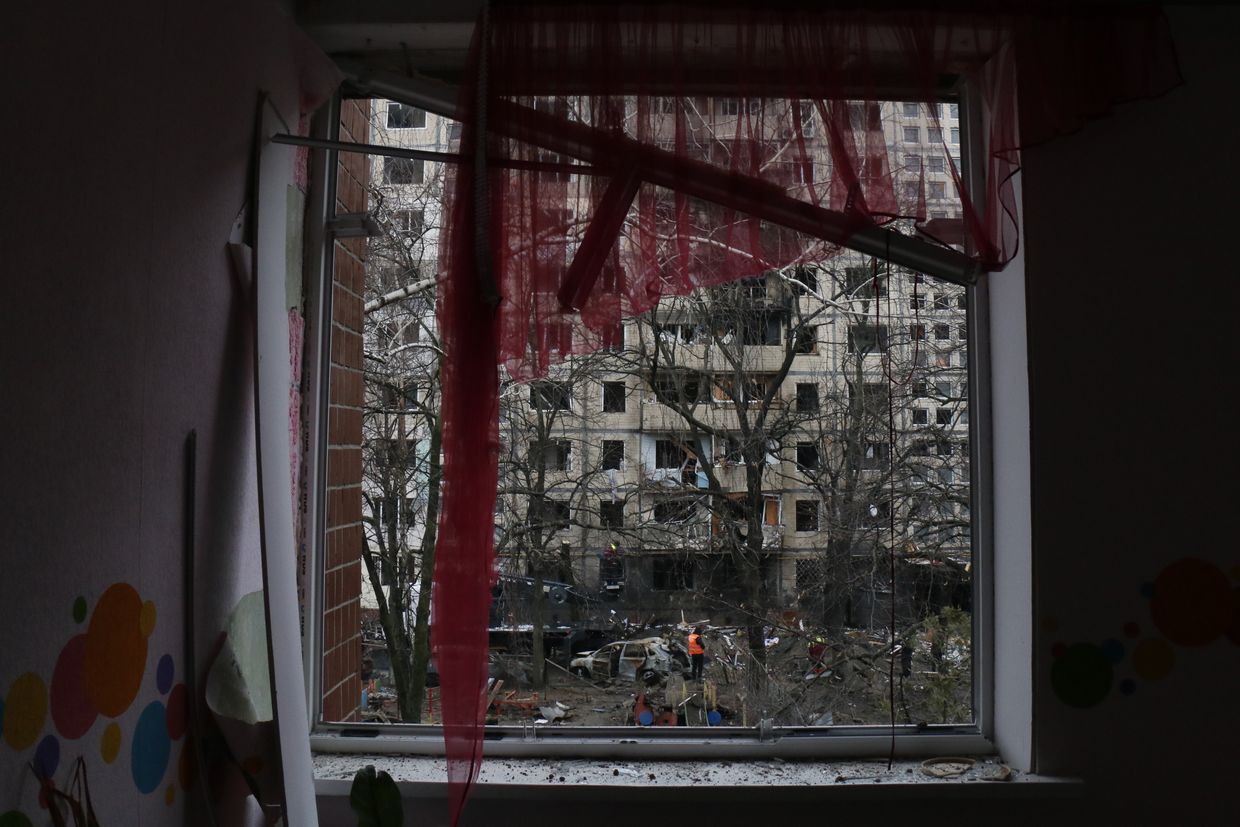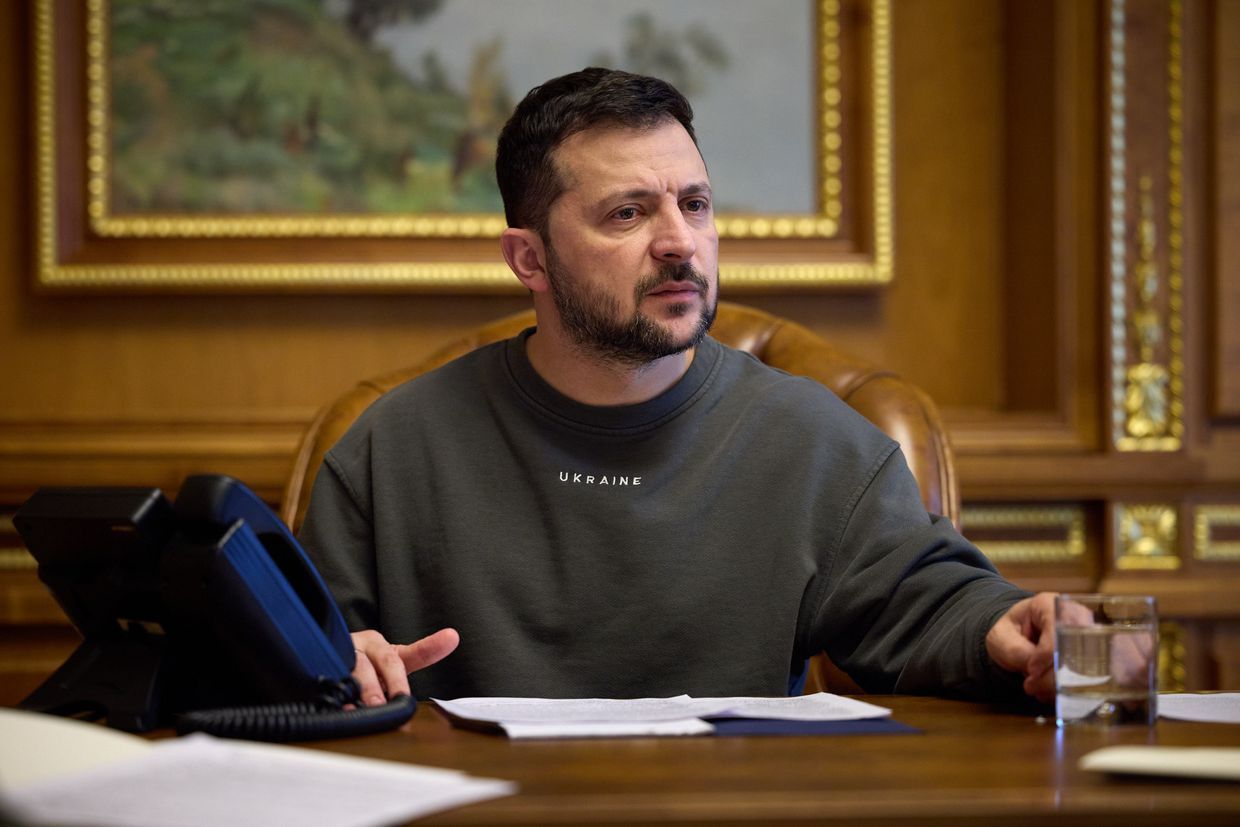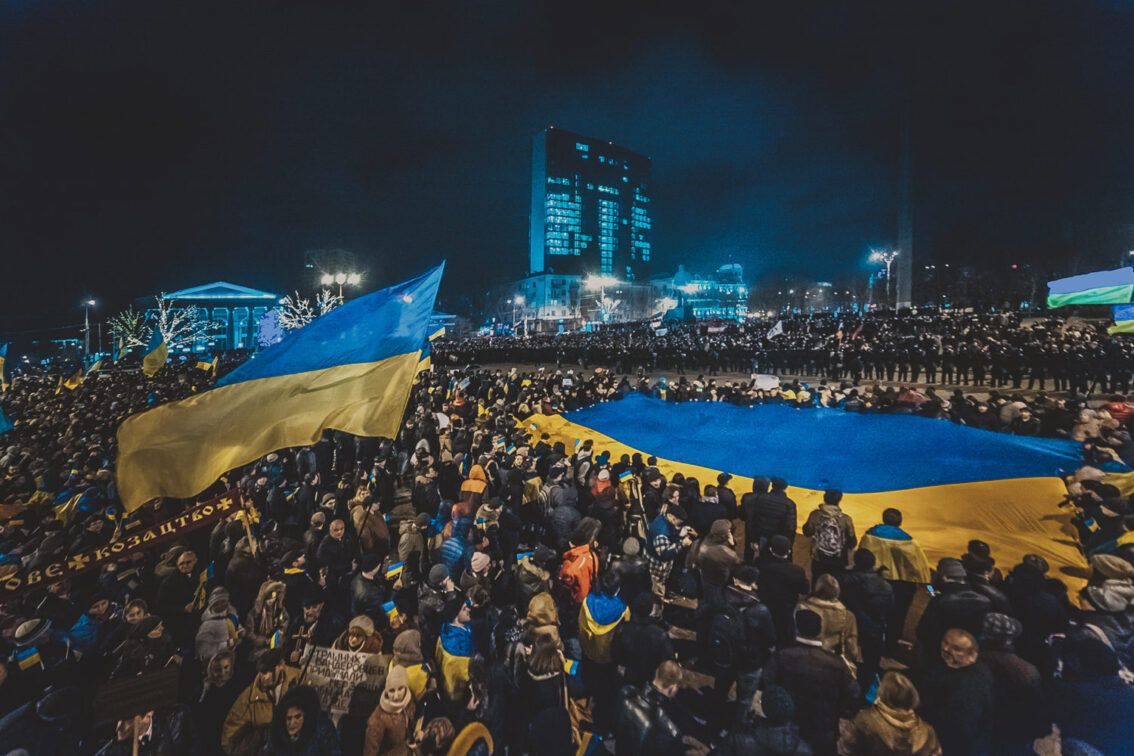Ukraine war latest: Zelensky visits US military base in Germany

Key developments on Dec. 14:
- Zelensky arrives in Germany, visits US military base
- Explosions heard in Kyiv, Khmelnytskyi Oblast in Russian missile attack on Ukraine
- European Council agrees to open accession talks with Ukraine, Moldova
- Putin: Russia allocating $11 billion per year to 'integrate' occupied territories.
President Volodymyr Zelensky arrived in Germany on Dec. 14, paying a visit to the headquarters of the U.S. Army Command in Europe and Africa, located in the German city of Wiesbaden.
Ukraine's head of state visited several countries in recent days, including Argentina, the U.S., and Norway, in a bid to reinvigorate support for Ukraine amid fears of growing hesitancy among allies.
The Frankfurt city police announced earlier on Dec. 14 that Zelensky had arrived at Frankfurt Airport, from where he was escorted to Wiesbaden.
"Following my visit to Norway, I arrived at the U.S. Army Command in Europe, which is based in Wiesbaden, Germany," Zelensky wrote on the social media platform X.
"I was once again convinced of the excellent quality of U.S. military aid to Ukraine. We critically need it for the victory!"
Zelensky voiced hope that additional funding for Ukraine, stuck in Congress due to political infighting, would soon be approved.
The U.S. Senate recently passed a record-high defense spending bill of $886 billion, which included $300 million under the Ukraine Security Assistance Initiative.
This is a separate bill from the yet unapproved $111 billion funding request that contains over $61 billion for Ukraine.
Explosions heard in Kyiv, Khmelnytskyi Oblast in Russian missile attack on Ukraine
Russia launched several long-range missiles at Ukraine on Dec. 14, with explosions heard in Khmelnytskyi Oblast and in Kyiv at around 4:00 p.m. local time.
The Ukrainian Air Force initially warned of missiles heading in the direction of Starokostiantyniv in Khmelnytskyi Oblast around 2:30 p.m. local time.
Air Force spokesperson Yurii Ihnat later confirmed on national television that a missile launch had been carried out in Starokostiantyniv.
Shortly before Ihnat's statement, an air raid alert was announced across Ukraine as Russian MiG-31 fighter jets took off from the Savasleyka Russian military airbase in Nizhny Novgorod Oblast.
The jets are capable of carrying Russia's modern Kinzhal air-launched ballistic missile, and often trigger air raid alerts across the country just by taking off.
Later, a second air raid alert was triggered by the taking off of more MiG-31s, after which explosions were heard by Kyiv Independent reporters in Kyiv.
The multi-million dollar Kinzhal missile presents a particular danger to Ukraine, as it can only be shot down with the country's most advanced air defense system, the U.S.-built Patriot, of which Ukraine only has two batteries in service.
Russian forces launched six S-300 missiles at Ukraine overnight on Dec. 13-14, the Air Force reported earlier on Dec. 14. An elderly woman was killed in an overnight missile strike in Kherson Oblast, the Defense Forces of Southern Ukraine said.
European Council agrees to open accession talks with Ukraine, Moldova
The European Council agreed to open accession talks with Ukraine and Moldova, European Council President Charles Michel announced on Dec. 14.
The announcement from a two-day summit in Brussels is a significant political victory for Ukraine amid worries that Hungarian Prime Minister Viktor Orban would block the start of the negotiations and uncertainty over further aid from the U.S. and the EU.
"It shows the credibility of the European Union, the strength of the European Union. The decision is made," Michel told journalists in Brussels. "It was important that no member states would oppose the decision, this is why we were in a position to make this announcement tonight."
An EU source told the Kyiv Independent that “PM Orban was momentarily absent from the room in a pre-agreed and constructive manner.”
Orban reiterated his opposition in a statement on Facebook following Michel's announcement, saying "EU membership of Ukraine is a bad decision. Hungary does not want to participate in this bad decision!"
Michel said the work will continue on the multi-annual financial framework in the hours to come as leaders juggle financial support for Ukraine with other priorities of the European Union, calling the debate difficult.
"I thank everyone who worked for this to happen and everyone who helped. I congratulate every Ukrainian on this day," President Volodymyr Zelensky wrote on social media in a response to the announcement.
Zelensky was not invited to the EU Council Summit in Brussels due to fears that his presence "could antagonize" Hungarian Prime Minister Viktor Orban, Politico reported on Dec. 14, citing unnamed EU diplomats.
The Council also granted candidate status to Georgia. The EU will open negotiations with Bosnia and Herzegovina after progress in membership criteria is reached, Michel said.
Ukraine and Moldova were granted candidate status last June, after which Kyiv was presented with seven criteria that needed to be fulfilled to start accession talks with the EU.
The European Commission issued a favorable assessment of Ukraine's progress in November and recommended the launch of accession talks.
According to the Commission's report from Nov. 8, Kyiv fulfilled four of the seven criteria pertaining to two judicial reforms, the alignment of anti-money laundering legislation, and media reform.
Earlier this week, European Commission President Ursula von der Leyen said that the country is well on its way to fulfilling the remaining recommendations.
Hungarian Prime Minister Viktor Orban, who has friendly ties with Russia, has also opposed discussing $53 billion in financial assistance for Ukraine as part of the EU's budget.
Shortly before the summit, Budapest signaled some willingness to compromise, saying it would be open to funding for Ukraine in exchange for releasing frozen EU funds earmarked for Hungary.
The European Commission released around $11 billion in EU cohesion funds on Dec. 13 but insisted this decision was in reaction to Hungary's judicial reform adopted in May.
Putin: Russia allocating $11 billion per year to 'integrate' occupied territories
Moscow is allocating 1 trillion rubles ($11 billion) into the "development" and "integration" of occupied territories into Russia per year from 2024, Russian dictator Vladimir Putin said during a press conference on Dec. 14.
Last September, Putin announced the annexation of occupied parts of Ukraine's Zaporizhzhia, Donetsk, Luhansk, and Kherson oblasts in a move broadly condemned by Kyiv and the international community.
Since then, Russia has embarked on reconstruction projects, most notably in the destroyed seaside city of Mariupol in Donetsk Oblast, in an effort to spread the image of care for the locals living there.
Putin also boasted about the establishment of sister-city relations between the occupied oblasts and other Russian regions. "They have already invested, I think, around 100–140 billion, or around 150 billion ($1.7 billion)," he said.
The Russian leader also noted that the occupied territories "contributed" 170 billion rubles ($1.9 billion) to the Russian federal budget this year.
The occupied territories have suffered a heavy toll in lives and property as a result of Russian aggression.
Since the start of the full-scale war, Russia has been plundering occupied territories, extracting mineral resources, and stealing agricultural products.
Putin also proposed new social support programs in occupied territories, which include extending a preferential mortgage program. Thousands of Russian citizens have moved into occupied territories of Ukraine with the support of the Russian state.















